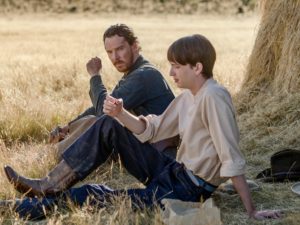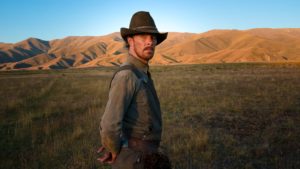The New ‘Old’ Hollywood that is ‘Babylon’
‘Babylon’ is an exhilarating journey one has to brace themselves for
Incluvie Foundation Gala - Learn More


Power of the Dog is a Western. There are cowboys, Natives, and a beautiful backdrop of dry land and shadowy mountains. These shadows may or may not resemble a barking dog.
For Phil (Benedict Cumberbatch), life is divine. His brother George (Jesse Plemons) however seeks more out of life. He meets Rose (Kirsten Dunst), a widow who runs a small inn with her son Peter(Kodi Smit-McPhee). George marries Rose and invites her and her son to live with him and Phil. Phil does not like this. He’s suspicious of Rose and her ‘Miss Nancy’ son Peter. Phil and his crew hurl insults at the boy and the ‘perddy’ flowers he makes, and a pretty clear ever-timeless toxic masculinity fills the setting not unlike the stench of rotting cow carcasses.
We learn more about Phil. He refuses to join a party gathering hosted by George because it would require bathing. ‘I stink and I like it’ he says in protest to his ‘fatso’ brother. We see Phil venture into the woods where he covers himself in mud and bathes naked in a stream.
It is here in Phil’s sanctuary where Peter inadvertently finds Phil while also stumbling upon a box of old magazines with pictures of scantily clad men. Is Phil’s rugged demeanor an act? Is he hiding more of himself than he lets on?

Phil’s relationship with the boy improves. He takes young Peter under his tutelage while Rose looks on in fear. The score by Radiohead’s Jonny Greenwood provides an unsettling atmosphere. Much like Greenwood’s previous work in There Will Be Blood, some unspoken danger surrounds these characters. But Phil and Peter’s relationship is actually quite innocent and non-sexual.
Yet Sam Elliot, a renowned actor known for roles in Westerns such as Tombstone and the TV series 1883 has come forward to criticize the film for its ‘allusions of cowboys and homosexuality.’ And he’s called into question the authenticity of this Western, seeing it more as Oscar bait than classic genre movie-making.
A great deal goes unsaid in Power of the Dog but that doesn’t make it any less of a Western than Unforgiven or Silverado. Director Jane Campion, who recently won an Oscar for Best Director, cleverly uses shots of hands carrying wood and sturdy arms making rope out of rawhide to suggest something intimate, a close contact between skin and flesh. In truth, Phil and Peter are somewhat suppressed characters, neither exhibiting any affection toward one another even in the film’s finale.
As far as characters go, Phil is about as close to a Western gun-toting hero one can get minus the gun and tote. He is a cowboy down to his core. He’s rejected conventional society and its expectations. That’s made clear when we learn Phil was a Yale scholar once upon a time who left a life of academia for the great outdoors. He’s also a bit of the classic anti-hero with questionable morals. The way he bullies Rose forces the audience to call into question his character.
But no matter the extent of his rebellious way of life or his cruel nature, this is still the early twentieth century where no one spoke of, let alone condoned, homosexuality.

But Phil isn’t twisted. This isn’t the well-trodded story of how American society warped the lives of gay young men in times past. Phil clearly retains his independence and sense of self. And this does not change as his relationship with Peter grows more meaningful. “Don’t let your ma make a sissy of ya,’ he says to Peter when they’re out together chasing and killing a rabbit. Weakness and frailty, qualities often assigned to gay cowboy, closeted or otherwise, in the film are left by the wayside here thanks to Phil Burbank.
And Phil is the same rough cowboy at the end of Power of the Dog that he is in the beginning. I like this. I like that he retains who he is no matter his sexual preference. Jane Campion has come forward to say there were homosexual cowboys back in the Old West as well. I think a problem she has with Sam Elliot’s comments is that he’s pushing forward a narrative that homosexuals did not exist at all in this historical setting.
But they exist here. Peter and Phil share a fateful cigarette toward the end of the film. Peter holds it while Phil takes a drag. It’s an intimate, calculated move of Peter’s that feels almost erotic without revealing anything explicit. It’s just two fellas splitting a cig. From there, Phil’s fate is decided. If they feel any real or true affection toward each other in the end, it’s up to the viewer to decide.
Related lists created by the same author
‘Babylon’ is an exhilarating journey one has to brace themselves for
Related diversity category
'Yuri!!! on Ice' turned queerbaiting on its head and gave me hope when I needed it the most.
Related movie/TV/List/Topic
Season three of Netflix’s "You" has finally made its comeback! Was it worth the wait? Well…I would not say so. It felt like a bit of a chore to get through. But, as I am somewhat of a completionist, I eventually saw the season through to the end.